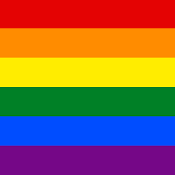Snark. I love it when it’s aimed at someone else. Not so much when it’s aimed at me.
Just what is snark, anyway? I mean, I’ve read Lewis Carrol, so I know it’s like a Bajoom, except nobody knows what that is either, except that if you find one, it will kill you. He says there’s a map to help me find a snark somewhere around here. Oh, wait. It’s blank.
What’s that? You thought I was going to write about the portmanteau, snark, not the Lewis Carroll poem The Hunting of the Snark?
I guess I could write a Newsletter on Carrol’s scathing critique of Realism. See, he was a logician and therefore an idealist. He believed that thought and logic alone revealed Truth. For him, those silly scientists and their empirical ways were just floundering around looking for a nonsense thing, a snark. They didn’t even have a proper map—that is, ideas—to guide them. In the end, they find a Bajoom, which of course will eat them all.
But I digress. This is a blog for authors, not for a critique of a poem some author wrote in 1876. So, I guess I’ll write about snide remarks, the two words that combine to form the modern portmanteau snark. Generally, any comment that’s witty, clever, or sarcastic but always snide counts as snark.
Carrol is sometimes credited with inventing the word snark, but in fact its roots are a Middle English word for snoring. Its first use as a snide remark seems to have been in the early twentieth century, but the modern sense of the word probably came into its own in the mid-1980s with CBS Late Night host David Letterman. His use of the word added a playful insouciance to what would otherwise be biting sarcasm.
That sinkhole of popular fads, television, is a virtual fountain of snark. Some TV shows are wall-to-wall snark, where the goal of the writers seems to be to show how clever they are. Consider this exchange from Firefly, which is typical.
Jayne: Ten percent of nothing is, let me do the math here, nothing into nothing, carry the nothin’…
Mal: Jayne, your mouth is talking. You might wanna look to that.
Snark is so common in the Harry Potter books, TVTropes has an entire webpage devoted to it.
In the age of celebrity, the snarky riposte is another trope.
Faulkner once commented about Hemmingway that “he has never been known to use a word that might send a reader to the dictionary.” Hemingway on Faullkner: “Does he really think big emotions come from big words?”
George Bernard Shaw once wrote Winston Churchill, “I am enclosing two tickets to the first night of my new play. Bring a friend. If you have one.” Not to be out-snarked, Churchill replied, “Cannot attend first night. Will attend second. If there is one.”
Dorothy Parker was a snark master, or should it be mistress? Anyway, on hearing an author was always kind to her inferiors, Parker wondered, “where does she find them?” Parker aimed her wit at herself as well as others. When asked if she would join Alcoholics Anonymous, she said, “Certainly not. They’d want me to stop now.” She also said of herself, “One drink and I’m under the table. Two, and I’m under the host.”
Even Shakespeare used snark. Think about Marc Antony’s famous “I come to bury Caesar, not to praise him” speech in Julius Caesar. He goes on to call Brutus and the other assassins “honorable men,” which is pure snark. Authors like Jim Butcher, Carl Hiassen, and P.G. Wodehouse pepper their dialogue with snark. In Robert Frost’s The Road Not Taken, the road that “made all the difference,” can be read as snark. Jane Austen, in Pride and Prejudice, uses snark when Mrs. Bennet says her husband has “no compassion for her poor nerves,” and he replies, “I have high respect for your nerves. They are my old friends. I have heard you mention them with consideration these twenty years at least.”
Why do authors use snark? It can create humor and pass judgement. It can relieve tension. It can reveal character by showing bravery in the face danger. It can showcase a character’s sense of humor—or show off the author’s. It can also be used as a mask, or a defensive device. Snark creates its own flavor and can help make a bit of dialogue or description come to life. In real life, snark can hurt people through humor, and this is true in fiction, too. But the humor can also take the edge off a bitter comment and soften an otherwise hurtful comment.
Snark is a literary device. Like any device, it can be over-used. A thirty-minute snark-fest on a TV sitcom can be amusing. Two hundred pages of non-stop snark would make a tiresome novel. As with any device, if it calls attention to itself, it detracts from the story. If it flows with the story and contributes to the here-and-now, it’s effective amusing.
How do you tell when snark is effective? I wish I had a snarky answer to that. Maybe you can help me out in the comments.

Be First to Comment